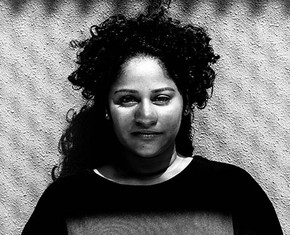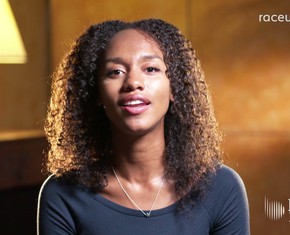The views expressed in our content reflect individual perspectives and do not represent the authoritative views of the Baha'i Faith.
Apparently, people can really get quite worked up when they talk about their children’s gender roles — especially male gender roles. When it comes to raising boys, we’re in a raging culture war battle.
For lots of folks, nothing seems more sacrosanct, more important, or more fundamental to their sense of identity than their perceived gender role. The discussion itself even offends some people, as if they have an enormous investment in keeping their own masculine or feminine roles intact and unchallenged.
Opinions range from one extreme to the other. Some believe that we should never abandon traditional gender roles — that boys and girls should stay the way they’ve always been, and that we must maintain the huge gulf which existed between a boy’s identity and a girl’s identity in Grandpa’s and Grandma’s time. Many who advocate a revival of those roles say “Let’s return to real masculinity!”
RELATED: Big Boys Don’t Cry: Questioning Traditional Masculine Ideology
Those on the other end of the spectrum believe that all gender identity is a socially-constructed lie, a complete, damaging falsehood; and that we should never impose any sort of “toxic” gender role on any child, no matter what our culture demands. As an extreme example, one couple, the subjects of recent media coverage, decided not to tell their first child her gender – to let her “self-determine,” in their words.
Just to illustrate the polarized culture battle here, I’ll list the titles of two diametrically-opposed popular books on raising boys:
- Raising Boys that Radical Feminists Will Hate
- Raising Cain: Protecting the Emotional Life of Boys
Yikes. What’s a parent of a boy to do? If I have a son, how do I raise him?
Much of the parenting advice today focuses on one of two assumptions:
- 1. Boys will be boys; or
- 2. The traditional masculine gender roles hurt everyone — boys and girls.
In their book Raising Cain, psychologists Michael Thompson and Dan Kindlon fall squarely into camp #2, and call for the creation of a new standard of emotional literacy for young boys — without “turning them into girls.” The authors outline the issue this way:
… if boys express emotions such as fear, anxiety, or sadness, they are commonly seen as feminine. The effect on males of having to conform to wearing a tough-guy mask creates suffering on both a personal and societal level and is particularly devastating for the sensitive boy, who has to try harder than the average boy to repress his emotions.
For more on this important subject, take a look at the excellent PBS documentary that discusses raising sons.
The idea of emotional literacy for boys hit pretty close to home for me, personally. I had a stern, violent ex-Marine for a father, and as his oldest son I was taught never to express my inner emotions. “Don’t be a sissy!” was my dad’s worst insult, and I heard it, at high volume, whenever my feelings leaked out. I rarely saw my own father express any emotion other than anger. I know he felt other emotions – everyone does – but he had been trained and socialized not to show them.
So growing up from boyhood to manhood, I struggled with how to even understand my own inner landscape, much less express it.
Of course, the hardened stereotypes of masculinity and femininity in many cultures primarily have to do with the emotions. When we view women as weak and men as strong; women as the protected and men as the protectors; women as emotional and men as stoic; we put everyone of either sex in a pre-determined, very hard-to-escape emotional cage. That cage can rob us of our genuineness, our authenticity, our true inner reality, what the Baha’i teachings refer to as our “freedom of soul,” as Abdu’l-Baha wrote in a letter:
There is a great difference between an authentic man and an imitator of one. The former is David himself, the latter is merely the tone of his voice. Knowledge and wisdom, purity and faithfulness and freedom of soul have not been and are not judged by outward appearances and dress.
RELATED: Boys – and Men – Need an Actual Role Model
Raising our sons to become authentic men — and authentic human beings – requires not only allowing them to acquire outward knowledge, but giving them the freedom and the awareness to seek self-knowledge. That self-knowledge includes the mind, the heart, the soul – and the emotions. Expressing and understanding your own feelings and emotions, one of the prime requisites for self-knowledge, doesn’t only belong to females — as Abdu’l-Baha wrote, men have the right to their feelings, too:
When man’s soul is rarified and cleansed, spiritual links are established, and from these bonds sensations felt by the heart are produced. The human heart resembleth a mirror. When this is purified human hearts are attuned and reflect one another, and thus spiritual emotions are generated.
Luckily, many societies around the world have begun to recognize this equality of the emotions in both men and women, and have started to condone and even encourage boys and men to feel and express their own feelings rather than reflexively repressing them. That’s a good first step – allowing boys to escape the confines of a rigid, constraining masculinity and determining their own roles rather than being forced to accept one that society requires them to adopt simply because of their biology.
















Comments
Sign in or create an account
Continue with Googleor